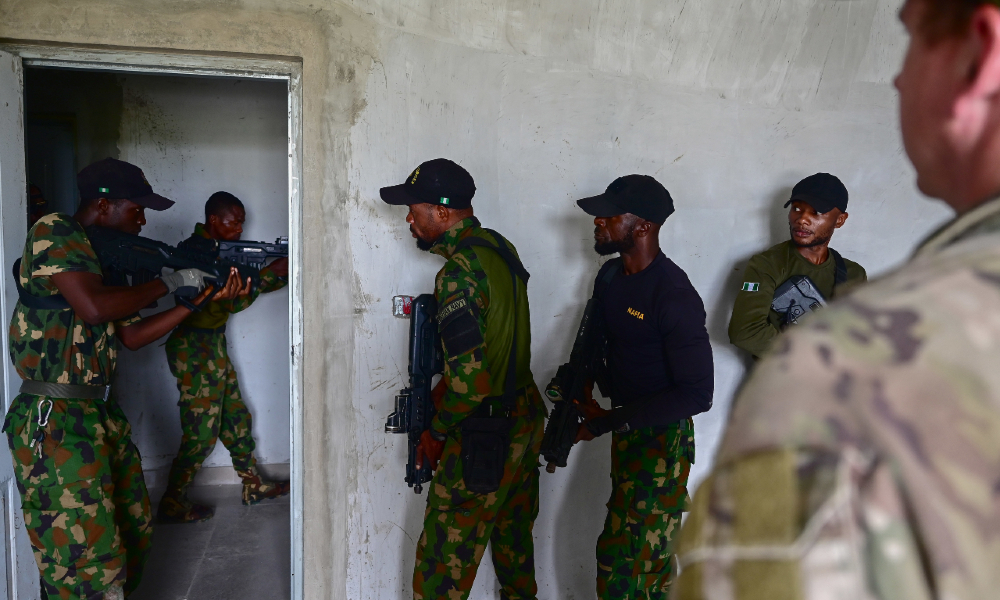Congress’s New Tactic to Keep Refugees Out and Guantanamo Open
On Wednesday, the Senate blocked the American SAFE Act, a bill designed to raise the security hurdles for Syrian and Iraqi refugees trying to enter the US. Coming on the heels of the Paris attacks, the bill had already passed the House with strong Democratic support. Notably, the debate surrounding the legislation appeared to ignore that, in attempting to drown the refugee process in red tape, SAFE Act proponents adopted the same playbook that has kept Guantanamo Bay open.
Published by The Lawfare Institute
in Cooperation With

On Wednesday, the Senate blocked the American SAFE Act, a bill designed to raise the security hurdles for Syrian and Iraqi refugees trying to enter the US. Coming on the heels of the Paris attacks, the bill had already passed the House with strong Democratic support. Notably, the debate surrounding the legislation appeared to ignore that, in attempting to drown the refugee process in red tape, SAFE Act proponents adopted the same playbook that has kept Guantanamo Bay open.
A central provision of the bill requires that, prior to being admitted to the US, each and every Iraqi or Syrian refugee must be unanimously certified by the Secretary of Homeland Security, FBI Director, and the Director of National Intelligence as “not a threat to the security of the United States.”
Nearly 50 House Democrats ended up voting for the measure – in a rebuke to President Obama, the bill passed the House with a veto proof majority. “I started out strongly opposed to it,” said one. “But then I read the bill and realized that what it actually required was simple certification.”
Certification may be simple, but it is not innocuous. Congress has effectively used the same tactic to stymie one of the Obama Administration’s most important foreign policy priorities – the closure of the detention center at Guantanamo Bay.
As part of his strategy to shut down the prison, Obama has tried to transfer many low level detainees to other countries willing to take them. In an attempt to resist the plan, Congress required that, before any transfer can occur, the Secretary of Defense must personally certify that the transfer is in the national security interests of the United States and that the risk of recidivism is “substantially mitigated.”
As Charlie Savage recounts in his book Power Wars, this “simple certification” process significantly stalled the Obama Administration’s transfer efforts. In 2014, Defense Secretary Chuck Hagel was painfully slow to approve any transfers. “My name is going on that document. That’s a big responsibility,” he said. His reluctance to approve the transfers caused friction within the White House and official strategizing about how to make Hagel move faster. Hagel ultimately resigned under pressure, with transfer approvals front and center. Other Defense Secretaries – including current Secretary Ash Carter – have been hesitant to approve the transfers as well.
This hesitation is natural. Congress demands the Defense Secretary personally vouch for a decision wherein the risks are completely one-sided. Should all former detainees slip into obscurity, no one will pay attention. However, if even one goes on to attack Americans, the public will deem the Secretary will be deemed personally accountable. “Low risk” releases are not “no risk” – would you be prepared to bear personal responsibility for American blood on your hands?
The SAFE Act attempts to apply the same pressure to top national security officials in order to bring the US Syrian and Iraqi refugee programs to a grinding halt. The refugee process would likely be paused for months while the relevant agencies work out the certification process. And once this process is finally developed, officials must guarantee that each refugee is no threat. This standard is even more stringent than the Guantanamo standard of “substantially mitigated” risk. At a November hearing, House Judiciary Chairman Trey Gowdy said, “we have to be right every time.” He pointed out that no security official was willing to say there are zero risks.
But zero risk is an absurd and unachievable standard. As Washington's governor said, there's risk getting out of bed in the morning. As with detainee transfers, forcing senior officials to certify that this standard has been met is a subtle but certain way to gum up the works. Certification is Congress’s new tactic to keep refugees out and Guantanamo open.





